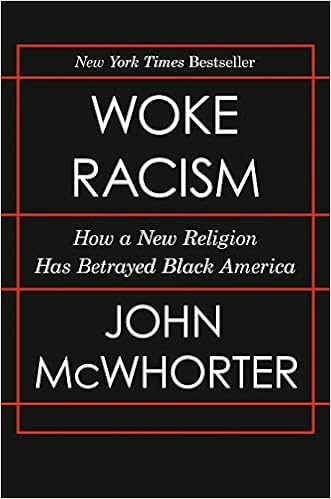John McWhorter is a professor of linguists at Columbia University. It makes sense for him to be interested in a Chinese language professor in California who was leading a discussion on filler words, such as “like” or “you know” in English. A common pause word in the Chinese language is “na-ge.” During his lecture, the professor repeated several times the term, which sounds like the N-word, but means “that.” Students complained, and the professor was suspended. “Those are cases that make the news because they’re especially colorful,” says McWhorter. “But it happens all the time.” There are real perils of cancel culture. While I do not agree with everything he wrote, I found his book Woke Racism to be a compelling and a really thoughtful book.

It is clear that we have become a culture of extremes, laying waste to people in the middle. Be it the mobs of cancel culture on one side or newly victimized anti-cancel culture advocates on the other, we increasingly use bombastic language. This makes us more tribal and less willing to take time to understand situations that are not our own. Both sides believe they are always right and are the guardians of truth. Both groups espouse politics that become equally zero-sum and exclusionary. The boundaries of our echo chamber are clear. In this current climate we are less likely to hear one another out. This ultimately takes us further away from fixing the serious problems. We have an inability to have substantive and serious debate about fundamentally crucial topics. We have lowered our level of discourse. Our next step is not clear.
To be clear, it is wonderful to live at a time when there are real and clear consequences for bad actions, we desperately need accountability. We need to continue our long march to living in a just and fair society. In the case of Chinese professor, too much is lost in translation. Have we gone too far? How might we fix this?
I was thinking about this issue this week when reading the haftorah, which is taken from the book of Jeremiah. There we read :
| Just as I would not cancel My covenant with the day and night and I would not cancel the laws of heaven and earth, so too I will not cast away the descendants of Jacob . . . for I will return their captivity [to their land] and have mercy on them.(Jeremiah 33:25-26) |
It concludes with words of reassurance that God’s relationship with the Jewish people is as implacable as God’s commitment to the natural order of time and law’s of nature. In Jeremiah we see that there are consequences for our behavior, namely captivity, but God is not into this cancel culture either. For us to return to a higher level of discourse we must follow God’s example. We cannot allow ourselves to be held captive by extremes. We must be open to listening to each other in good faith without just canceling them. We need to be clear when people hurt us, be open to change, have mercy for people doing their best, and most importantly rebuild trust. A world without accountability and a belief in and practice of teshuva is one that will remain broken. As sure as the passing of day and night and laws of heaven and earth, we need to find a way to return.
Leave a comment